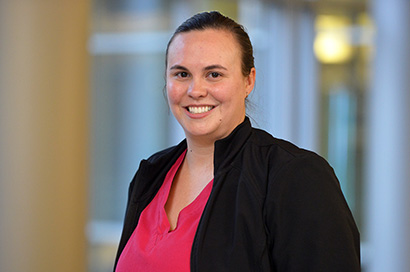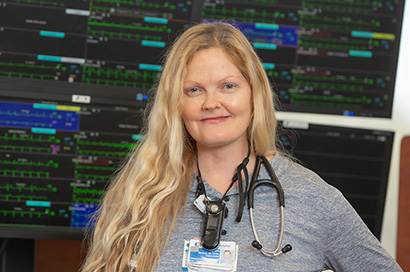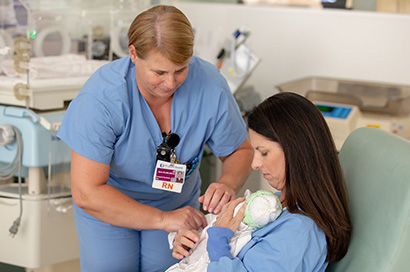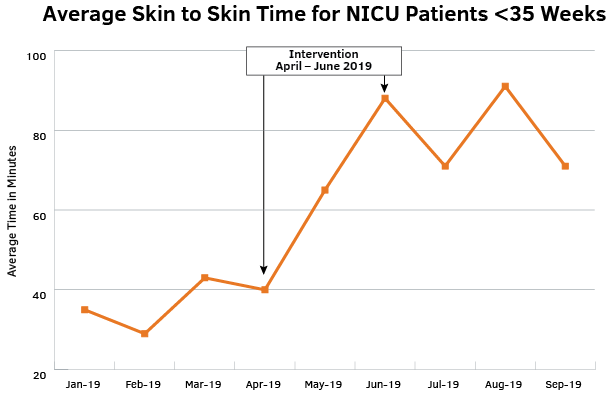
Implementing the DAISY Award
In December 2019, Megan Carrigan, a nurse in the Mountain View Emergency Department, became El Camino Health's first DAISY Award recipient.
The DAISY Award for Extraordinary Nurses was created by Mark and Bonnie Barnes in memory of their late son Patrick. Patrick died at the age of 33 of complications of Idiopathic Thrombocytopenic Purpura. The Barnes family was so profoundly touched by the nursing care their son received during his illness they decided to create a way to thank nurses for the care they provide. They developed the DAISY Foundation in 1999 with one hospital, and there are now more than 4,000 hospitals participating in the program.
This is a monthly award, and nurses are nominated by patients and/or families for providing extraordinary care.


